Italy / hobbist artist. Hello! I'm Aoi ヾ(´▽`;)ゝ Blog about drawing and chill (mainly FGO now)
Don't wanna be here? Send us removal request.
Text

I forgot to post this drawing... also I think I'll start posting more frequently here on Tumblr, like on my Insta account
However I really like Xiao on both design and character ❤️
72 notes
·
View notes
Text
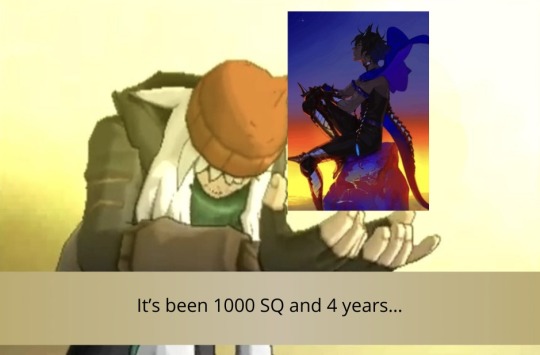
I FINALLY DID IT!!
After 4 years (from his first release on Yuga Kshetra banner) and after nearly 800 SQ on the first attempt an 228 SQ this time! It's an ordeal that ends 😭😭
Thank you Gacha and Megane Event!!! ❤️❤️
Notable other drops
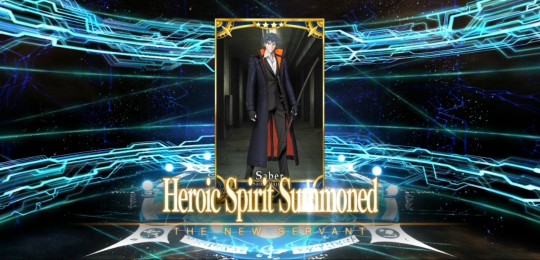
New Hajime came in NP3
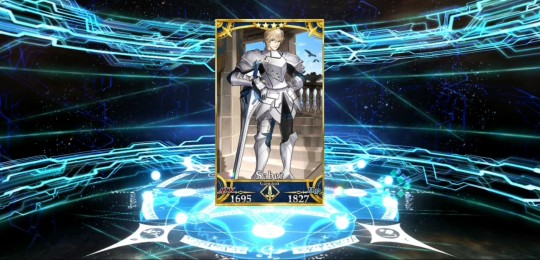
2 copies of Gawain useful for NP5
*Gold rider appears*
me carelessly: Nemo?
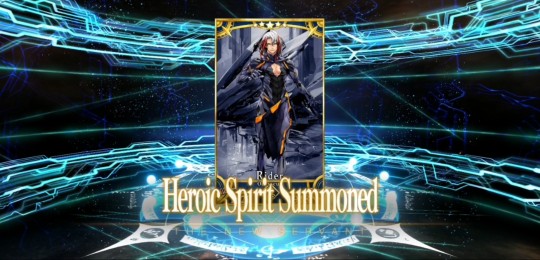
Odisseus: Pardon me?
The end
7 notes
·
View notes
Text

Made this drawing some time ago. I really like the anime "Frieren - Beyond Journey's End" until now ❤️
#frieren: beyond journey's end#frieren#sousou no frieren#art by me#fanart#digital art#digital illustration#digital drawing#digital painting
23 notes
·
View notes
Text
Also me but then...
*takes the pen/pencil in the hand*
ok now... where do I start!?!?!?!?!?!?!?
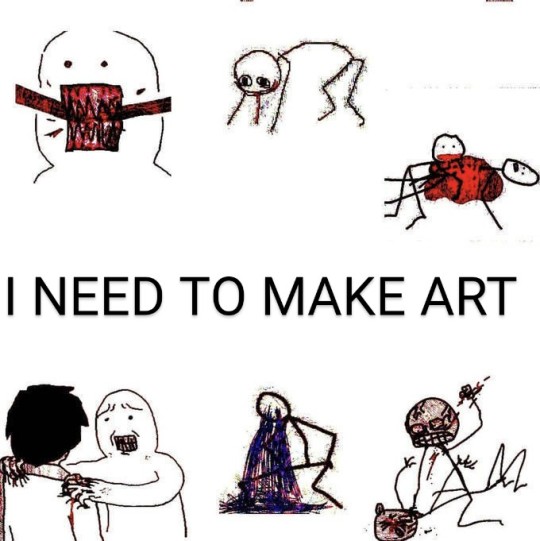



#because an artist always have thousand of projects in mind#I don't think of being the only one#am I??
164K notes
·
View notes
Text

Did this piece around January of the past year, I totally forgot to post it here 🤣🤣🤣
So here we are, Cyno is a beautiful character. And I personally adore his jokes, they are pretty cute ❤️
#also I adore his design!#genshin impact#cyno#genshin impact fanart#genshin fanart#fanart#art by me#drawing traditional#traditional art#copics#copic art
17 notes
·
View notes
Text
WAIT... IT WAS BUGGED AT THE END?! 😂😂😂😂
I really would like to play the Tunguska raids...

If only they were not in the middle of the night 😩


2 notes
·
View notes
Text
I really would like to play the Tunguska raids...

If only they were not in the middle of the night 😩


2 notes
·
View notes
Text






HAPPY 5TH ANNIVERSARY TO ME ❤️
Yesterday was the 5th anniversary of my Fate Grand Order NA account!

For the occasion I decided to draw my grailed servants with level 100 and above. I'm a person who use the grails on my fav servants, here the full list:

It happened a couple of times that I lost my login streak, those two days I remember I was extremely exhausted after a heavy day of work. Well I hope this will not happen again 😅
#fate grand order#fate series#enkidu#gilgamesh#fate strange fake#anime#fgo#fanart#Voyager#da vinci rider#arthur pendragon#art by me#fate extra#fate grand order fanart#fgo na
30 notes
·
View notes
Text
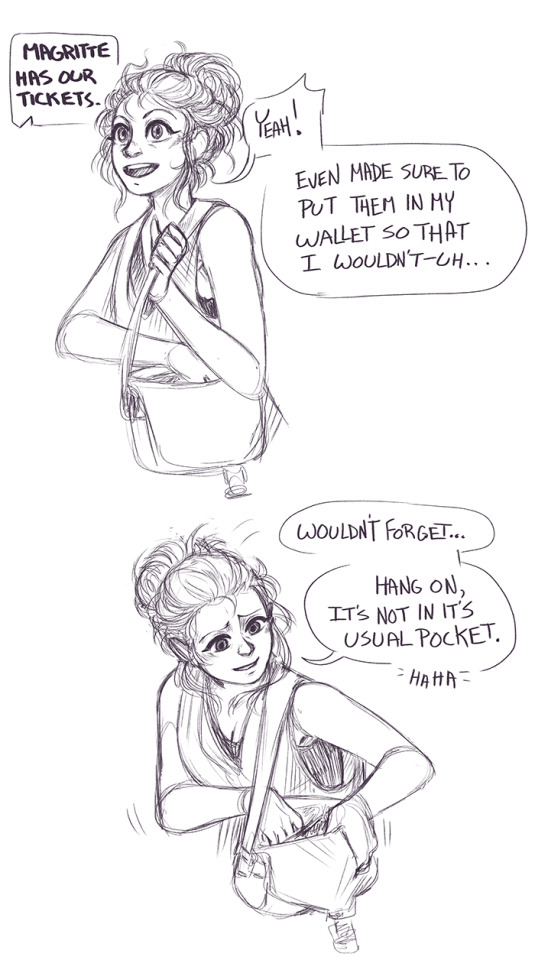
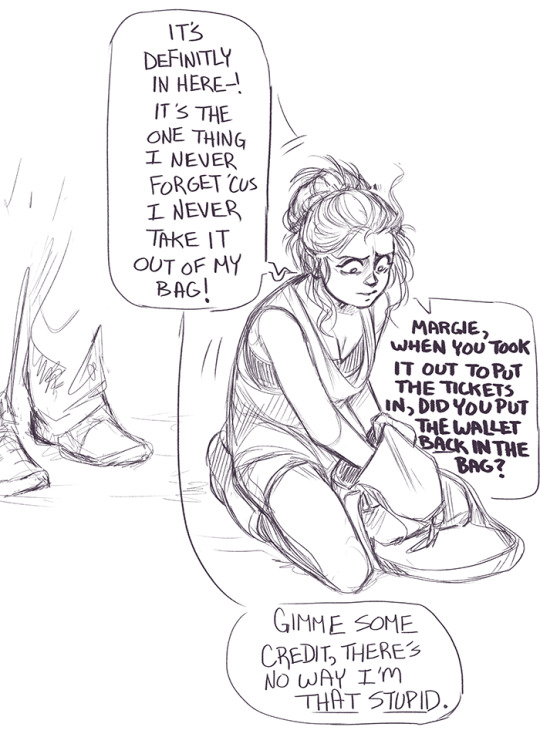

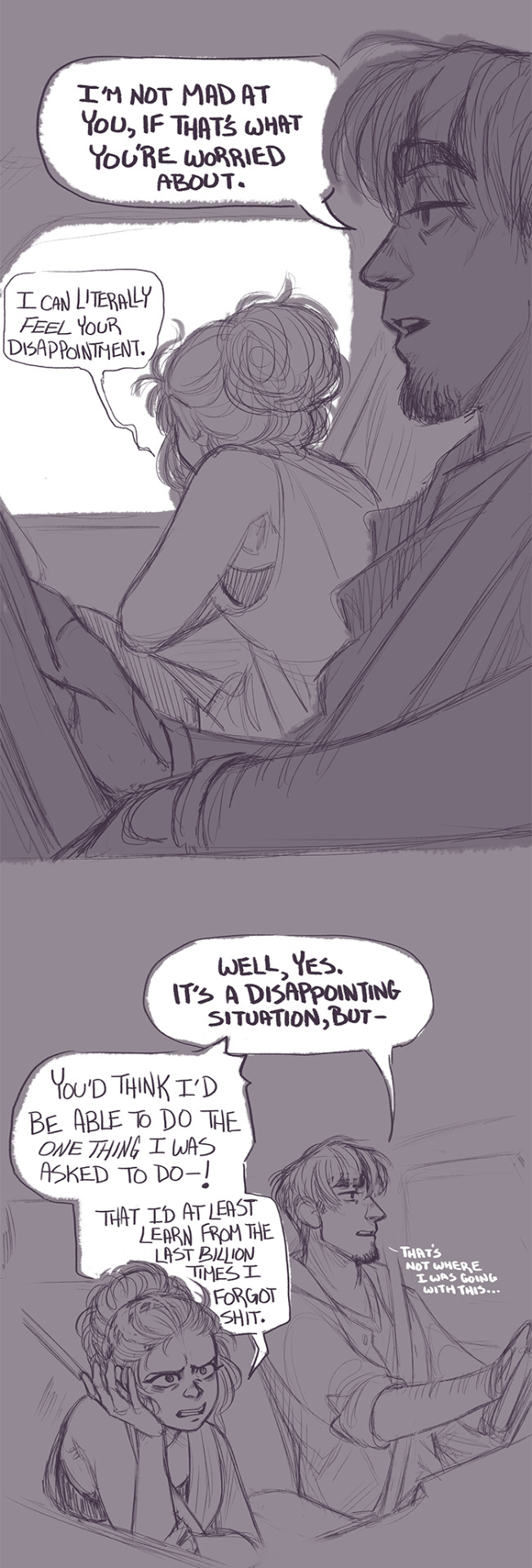
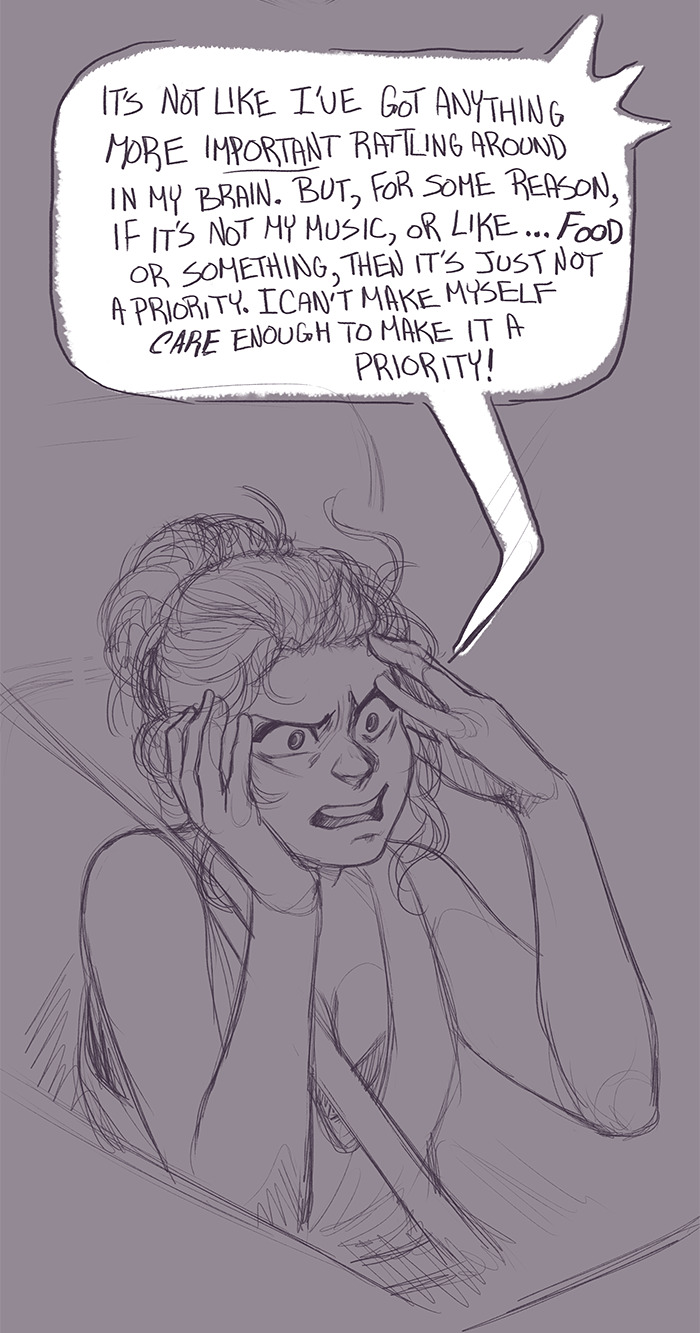


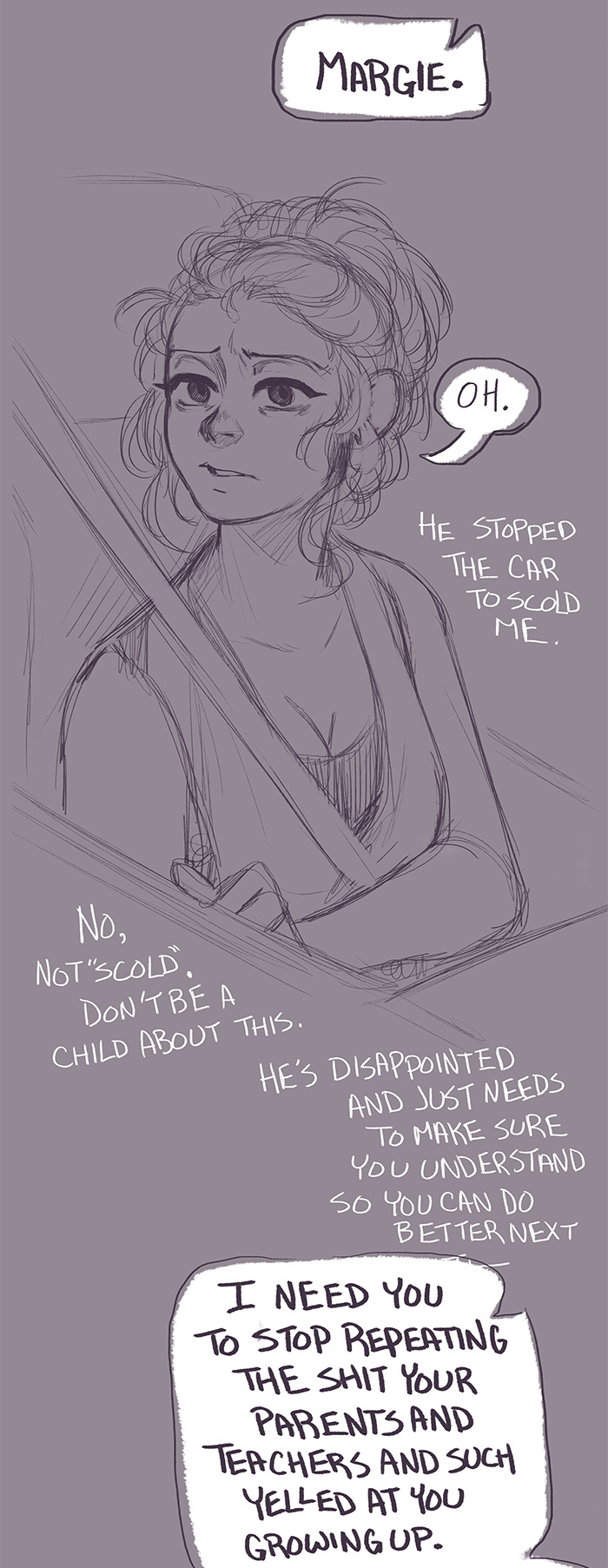
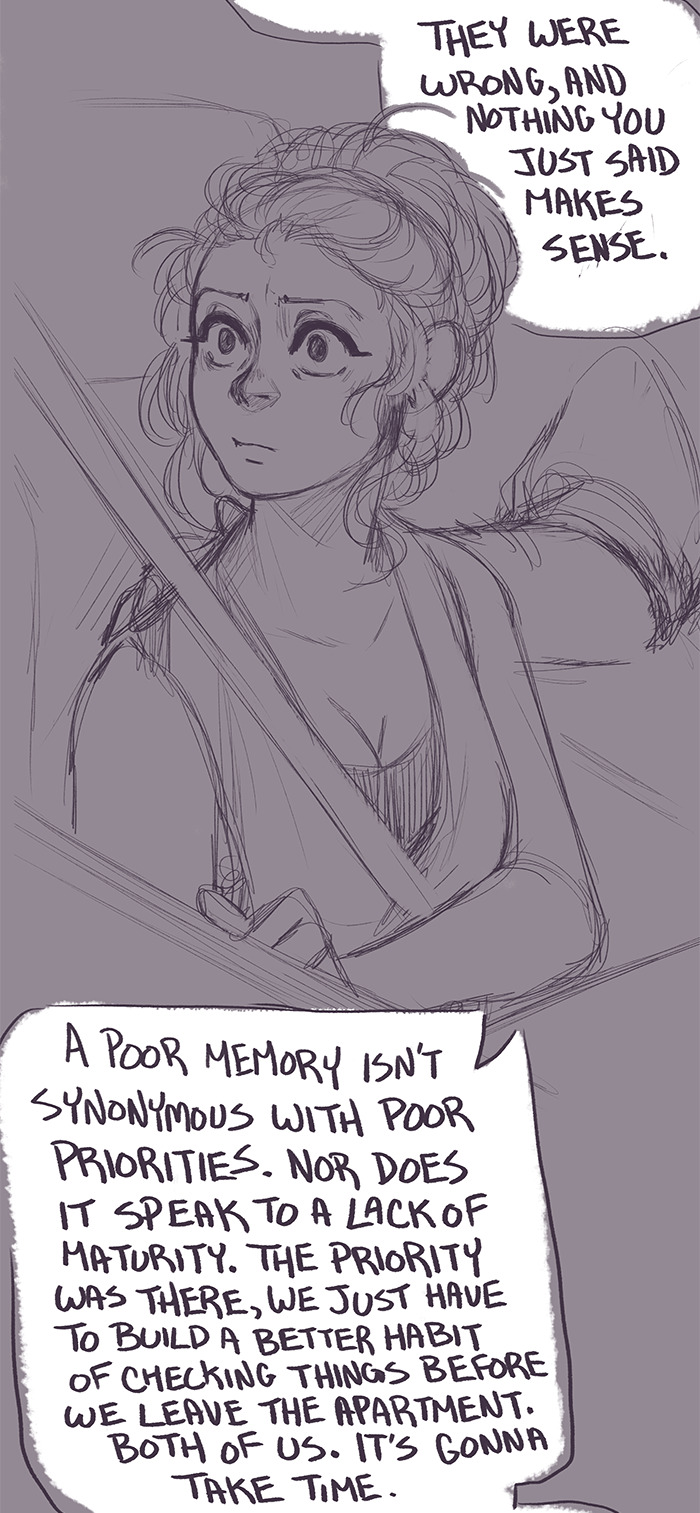


A quick, sloppy little comic about Magritte
[Image Description: It's a vertical comic strip of 14 panels arranged one under the other. The style is realistic, done with sketchy lines in a dark burgundy. It is not colored or shaded and there is no background. The comic features the interactions of a couple, Magritte (also called Margie) and Rafael (also called Raf). Magritte is a young woman, she is wearing a baggy armhole tank top with a tight fitting black top underneath, shorts and boots. She has a messy bun and a small messenger bag slung over her left shoulder. Rafael is her partner, wearing baggy pants, sneakers, fingerless gloves, V-neck t-shirt and an open button-up jacket with a hoodie and the sleeves rolled up to his elbows. His hair has short side with long top bangs and a short goatee.
(First panel): There's only Magritte visible from the waist up. Off screen, Raf says to someone else: “Magritte has our tickets.” Magritte is excited, looking straight forward. Her left hand in on her bag's strap, her right hand rummaging inside her bag. Magritte says: "Yeah! Even made sure to put them in my wallet so that I wouldn't- uh..."
(Second panel): She is beginning to look concerned, now with her face turned to her back, both left hand holding the lip to open the bag wider and her right hand still rummaging inside. Magritte says: "wouldn't forget.... Hang on, it's not on it's usual pocket. Haha." The last is a nervous laughter.
(Third panel): Magritte is kneeling on the ground. Rafael is standing to the side and behind her, only his feet visible. Magritte looks frantic, searching inside her bag. Her right arm is forearm deep digging in her bag. Magritte says: "It's definitely here-! It's the one thing I never forget 'cus I never take it out of my bag!" Rafael says, firmly: "Margie, when you took it out to put the tickets in, did you put the wallet back in the bag?" The letters are bolded, with the word "back" underlined for emphasis. Magritte says: "Give me some credit, there's no way I'm that stupid." The last three words are underlined for emphasis.
(Fourth panel): The scene has changed and now Magritte and Rafael are in a car. We see them from the passenger's side. Rafael is driving, looking straight ahead at the road. Magritte is hunched forward, hugging herself with the left hand. Her right hand is holding her head. She is looking out the passenger window, avoiding Raf.
(Fifth panel): Rafael turns slightly to look at Magritte.
(Sixth panel): The point of view is now a side profile view from the drivers side. Rafael has his left arm leaning on the open window, his right hand on the wheel. Magritte is hunched over facing the passenger window. Rafael says: "I'm not mad at you, if that's what you're worried about." Magritte says: "I can literally feel your disappointment."
(Seventh panel): Back to the passengers side, Rafael is looking at the road. Magritte is frustrated, no longer leaning her head against her right hand and instead her hand is palm upwards. Rafael says: "Well, yes. It is a disappointing situation, but-" Magritte interrupts: "You'd think I'd be able to do the one thing I was asked to do-! That I'd at least learn from the last billion times I forgot shit. Rafael says, quieter: “that's not where I was going with this...”
(Eighth panel): Magritte has her right hand holding her face with the palm on her cheek, left hand placing the tips of her fingers on her left temple and eye brows. She is frustrated and angry. Magritte says: "It's not like I've got anything more important rattling around in my brain. But, for some reason, if it's not my music, or like.... food or something, then it's just not a priority. I can't make myself care enough to make it a priority!"
(Ninth panel): She now has both hands in front of her, elbows bent, finger extended in a vague hand gesture as if there was something in front of her. Magritte says: "I'm an adult in my 20s and I still manage my responsibilities like a child. I'd be more dependable if I could just stop and think for a second, but I'd probably forget to even breathe if it weren't for the..."
(Tenth panel): Her frustrated expression turned to confusion. Her hands are still in the air in the same position as before. Magritte says:"... why are we parked?" Her noticing this stopped her rant.
(Eleventh panel): Magritte straightens up and faces the window entirely, left hand crossed over her body to lean on the car door. Rafael, off screen: "Margie." Magritte says: "Oh." Magritte's inner thoughts are written around her. "He stopped the car to scold me. No, not ‘scold’. Don't be a child about this. He's disappointed and just needs to make sure you understand so you can do better next ti-"
(Twelfth panel): Magritte is still looking out the window, but now with a shocked expression. Rafael reached with his right hand, and its now resting gently on her upper back. Rafael interrupts her inner monologue with "I need you to stop repeating the shit your parents and teachers and such yelled at you growing up. They were wrong, and nothing you just said makes sense."
(Thirteenth panel): The perspective switches back to the driver's side profile. Rafael says: "A poor memory isn't synonymous with poor priorities. Nor does it speak to a lack of maturity. The priority was there, we just have to build a better habit of checking things before we leave the apartment. Both of us. It's gonna take time. You afford everyone else a ton of patience, all the time. Can you please afford some for yourself? The situation sucks, we were both looking forward to this. But it's not the end of the world. We didn't forget things on purpose. So let's take it easy and try to end the day on a good note. Alright?" Magritte says: "Okay... c-can we um...."
(Fourteenth panel): Magritte has turned to face Rafael and her eyes are filled with tears and they're running down her cheeks. Rafael looks startled, lifting his arm off Magritte's back. Magritte says: "Can we get some ice cream on the way back?" Rafael says: "O-of course!" End of description.]
This description was written and provided by Hiwi.
#so relatable#I'm in my thirty and still keep forgetting important things#Still finding my own way to do things#damn
62K notes
·
View notes
Text
Anime's Greatest Chad: The Epic of Gilgamesh (Fate)
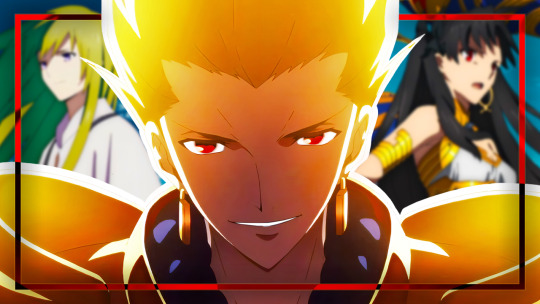
Gilgamesh is known as mankind's first hero.
But his story isn’t limited to just the Fate series. In fact, it’s shaped our modern lives more than you could ever imagine.
If you’re here for a historically accurate depiction of the man who tried to conquer death, don’t leave. I’ve worked really hard to make this as accurate as possible.
And if you’re here for the story of the real anime Gigachad, and how he goes from an arrogant dictator to a benevolent king.
Then grab a drink and some snacks, because this, is the tale of the Hero of Heroes.

Roots of the King
Before we jump into the Epic of Gilgamesh, it’s worth taking a second to understand the roots of this iconic character and his influence on human culture and literature.
Mesopotamia was a region in 3100 BC, now covered by Iraq, Syria, and Turkey. It had its fair share of events, from the reigns of Sumerians and Akkadians to being eventually conquered by Alexander the Great in 332 BC.
But nestled within this timeline is a certain story that’s so profound, so raw, it's been echoing for millennia.
Now I know what you’re thinking.
"I'm here for anime, not a history lesson."
But the thing is, all evidence points to Gilgamesh actually existing 5000 years ago. And his legend is recorded in mankind’s oldest poem, the Epic of Gilgamesh.
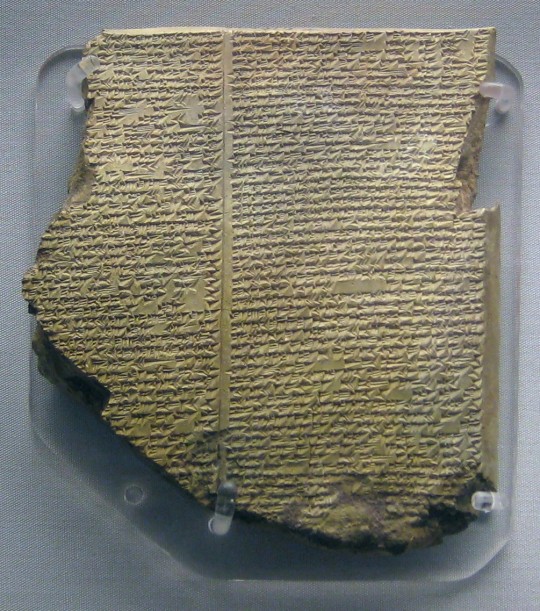
The epic is thought to have been orally transmitted for generations before it was finally written down on clay tablets in the cuneiform script, which was one of the earliest systems of writing.
To put into context how old that is, it makes him almost 3000 years older than Jesus.
But I wouldn’t take EVERYTHING that follows as being literal. Just know that some of the stuff is actually reported to have happened.
The Hero of Heroes
Gilgamesh is known as the King of all Heroes because every single myth that followed, every story, every legend from every culture and every religion in every country, it all borrows inspiration from mankind’s first hero.
The strongest examples of this are in the Biblical tale of Noah and the Greek myth of Hercules. And his story greatly influences modern literature too, like The Lord of the Rings and A Game of Thrones.
The story of the Epic of Gilgamesh was discovered on 12 clay tablets found among the ruins of the ancient library of Ashurbanipal, the last great king of the Neo-Assyrian Empire.
These tablets, inscribed with cuneiform script, are dated to around the 7th century BC but are believed to preserve much older stories that were likely first told orally and later written down.
These ancient tablets provide the most comprehensive version of the epic, but parts of the tale also appear on other scattered fragments found at different ancient sites across the Middle East.
There are actually two versions of Gilgamesh in the Fate series and they’re technically different people.
Well, they’re not, but they kind of are.
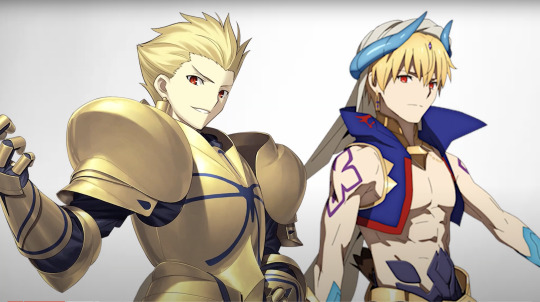
Archer Gilgamesh
We’re in the year 2800 B.C., the Age of the Gods, where divine beings and humans walked the Earth together.
Some Gods were just, while others treated their subjects as slaves.
One day, a greater god called Sefar invaded the Earth, killing many of the Gods.
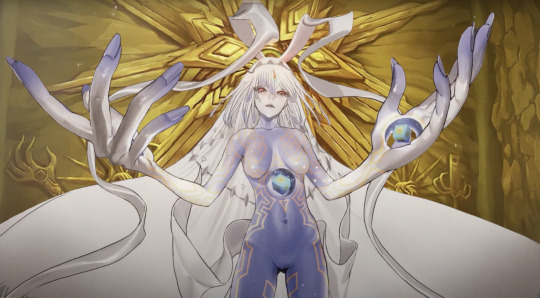
She was eventually defeated, but the damage was already done, and the rule the gods had over the humans had severely weakened.
In order to preserve their rule, the gods needed a keystone, a Wedge of Heaven that connected the rising humans to the fading gods.
That keystone was Gilgamesh.
Born from the Goddess Ninsun and the Human King Lugalbanda, Gilgamesh was two-thirds God, and one-third human, and ruled over humanity with the mission to observe and adjudicate.
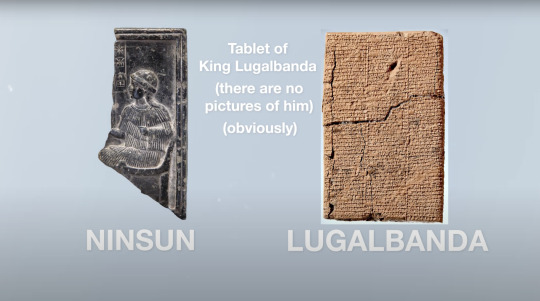
The Fortress City
The city Gilgamesh ruled over was called Uruk, situated in present-day Iraq.
Yet, Uruk was far from ordinary.
It stood as a testament to human achievement, its towering walls not just architectural marvels but also echoes of the ambitions of its people.
Conceived under the watchful eye of Gilgamesh, these walls became more than mere defensive structures; they symbolised humanity's victory over nature. This audacious statement reflected Gilgamesh's own beliefs: that he stood above nature itself.

As evidence of its profound legacy, archaeologists pinpoint Uruk as one of humanity's earliest urban epicentres, with roots as deep as 4000 BCE. Its intricate temples, ziggurats, and canal systems all serve as relics of its storied past.
The Tyrannical King
This transcendence over nature, and the very walls that proclaimed it, became the lens through which Gilgamesh viewed himself.
To him, the limitations of divinity and humanity were but mere lines in the sand.
He believed that while no human could rival the gods, the gods themselves could never experience the complexities of human existence.
And since Gilgamesh was both human and God, he perceived himself not just above his subjects, but even the deities that breathed life into him.
His self-awareness was, in many ways, his crowning achievement.
Gilgamesh grew to become a cruel, arrogant, and oppressive tyrant who subjugated his people to forced labour and sexual abuse.
And just to be clear, I’m downplaying that a lot because even I don’t want to talk about some of the disgusting things he is historically reported to have done.
And it makes me wonder how he ever became a Heroic Spirit in the first place.

The Man Made of Clay
Naturally, the gods didn’t want this, but they couldn’t exactly do anything about it because, well, Gilgamesh just wouldn’t submit to them.
So instead, the King of God’s Anu, and the Goddess of Creation Aruru, created a monster out of clay called Enkidu, to punish the arrogant king.
But there was a problem.
You see, Enkidu didn’t have a soul, and so couldn’t make rational decisions.
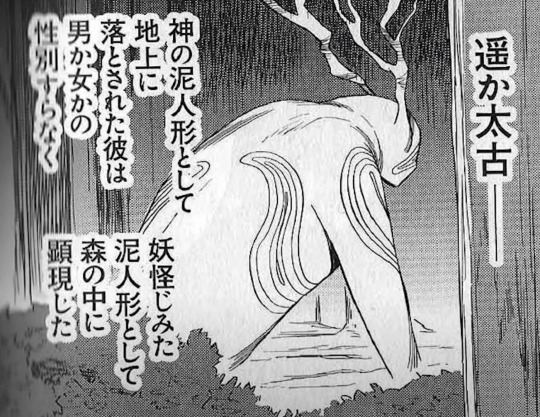
So the gods sent a divine harlot to sleep with him. (And I’m not even joking.)
After this, Enkidu takes human form, and his final appearance is very similar to the girl he slept with. And that’s why he has such a feminine form.
(It’s definitely not because having more hot girls leads to more sales)
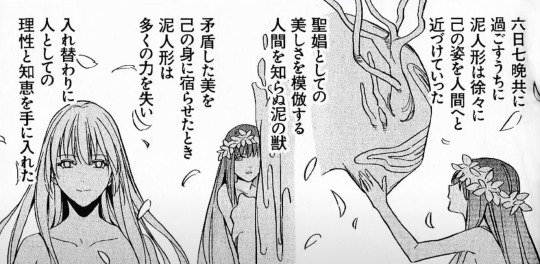
Noble Phantasm's
Before we dive into what happened between Gilgamesh and Enkidu, let’s talk about Gilgamesh’s powers, or more specifically, Archer Gilgamesh’s powers.
In Fate, heroic spirits have Noble Phantasms, which are special weapons or abilities that embody the legend of that hero. For example, King Arthur’s Noble Phantasm, or rather, Artoria’s Noble Phantasm (Again, because more hot girls = more sales), is Excalibur, the sword of promised victory.

Gilgamesh has a lot of Noble Phantasms, and I mean, A LOT. It would take me a decade to cover them all, but I’ll talk about a few.
Sha Naqba Imuru:
The first is his ability Sha Naqba Imuru, or Clairvoyance, which lets him see into the future and see the truth of anything he looks at.
So in a fight, he knows exactly who his opponent is, what their abilities are, and how best to defeat them. Or if he’s playing chess, then he knows the correct move every time.

This ability is pretty OP but the thing is, Gilgamesh barely uses it.
Why?
Because he’s an arrogant prick.
He believes himself to be so powerful, that he doesn’t even need it most of the time.
And uhm… he’s kinda right...
Especially when you learn about his next Noble Phantasm.
The Gate of Babylon:
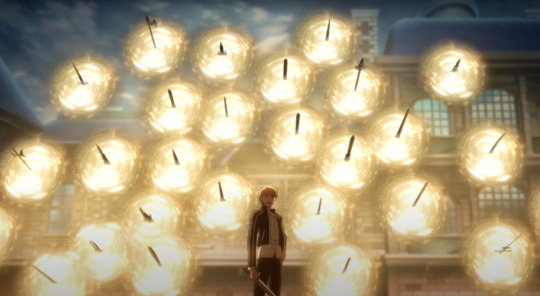
During his time as ruler of Uruk, Gilgamesh amassed every single weapon on Earth and stored them all in his treasury.
And I genuinely mean, every single weapon.
And the Gate of Babylon allows him to choose whichever weapon he wants, whenever he wants, wherever he wants.
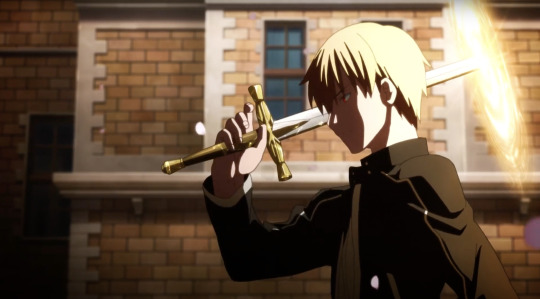
But that’s not how Gilgamesh uses it...
Every single weapon is fired out at a speed of Mach 10, and he has so many, that he could go his entire life firing them away without having to use a single one twice.
What makes this ability even more OP, is that these weapons aren’t just ordinary weapons. Every single one of them is a Noble Phantasm in itself. Artoria’s Excalibur, Lancer’s Gae Bolg, Hercules’ Nine Lives, Gilgamesh has all of these weapons in his treasury.
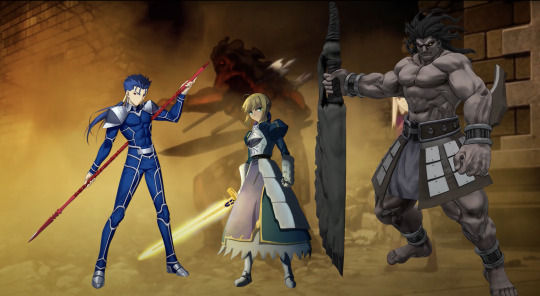
But how is that possible if these heroes came AFTER Gilgamesh?
Well. That’s because they’re prototypes.
I mentioned earlier that almost every legend told today is in some way inspired by the Epic of Gilgamesh. And in the same way, every weapon used today has a design that is somehow based on those in his treasury.
He owns every weapon that existed and owns every weapon that is yet to exist.
And don’t get me wrong.
While they’re technically prototypes, it is said that if you compare the original weapon to Gilgamesh’s prototype, the original will look like a fake, that’s how well-made the prototype is.
Not only that, but in a fight, the prototype will beat the original every time.
Now that doesn’t mean that if Gilgamesh were to use Excalibur and fight Artoria in a 1 on 1 swordfight that he would win.
He’d probably lose.
And that’s because he’s a jack of all trades but master of none.
Gilgamesh is a brilliant swordsman. But these other heroic spirits have spent their entire lives mastering a single weapon, and thus can use them to their full potential, which Gilgamesh cannot.
That being said. Gilgamesh DOES have one weapon that only he can use, one so powerful that it defies reality itself. Buuuuut I’ll talk about that later.

The Great Battle
Enkidu eventually confronts Gilgamesh outside of the Temple of Uruk, stating that he needed to be punished for disobeying the gods.
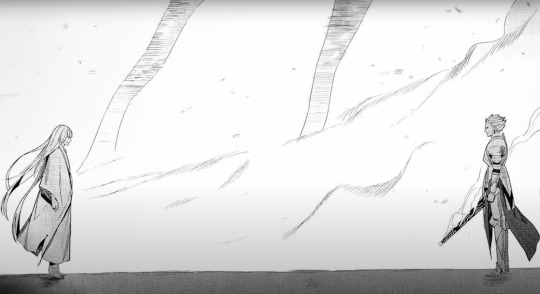
But Gilgamesh isn’t one to let anyone talk down on him.
So he engages Enkidu in a battle that lasts days on end.
And this was pretty new to Gil. It was the first time he ever came across someone equal in strength to him, which forced him to use his Gate of Babylon.
Gilgamesh was furious that someone had caused him to waste his weapons, he was humiliated.
But eventually, he stopped caring, and he even started to enjoy himself after finally finding someone worthy to be in his presence.
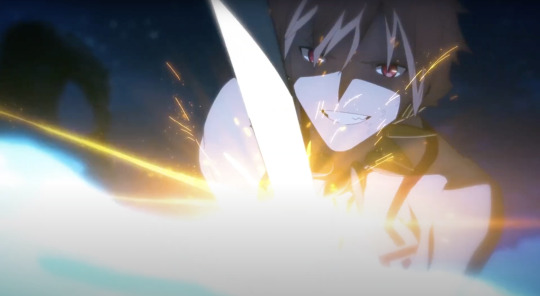
This battle lasted so long and was so fearsome that Gil exhausted every single weapon in his treasury, but by this point, Enkidu was severely weakened and Gilgamesh had won.
But instead of finishing him off, Gilgamesh extended a hand to him.
He saw Enkidu as an equal, and Enkidu ended up becoming Gil’s first friend, his only friend.
Friendship
One day, Gilgamesh set his sights upon defeating the Beast of the God’s, Humbaba.

But the thing is, the God’s hadn’t told him to do this, and he wasn’t doing it for the sake of his people either, because, well… he didn’t care about them.
Gilgamesh simply saw Humbaba as something that needed to be removed from the Earth in order to see out his mission.
Gilgamesh had always disobeyed the God’s so that he could be far removed from them, and he wanted his people to hate him so that he could be far removed from them, because that was the only way he could be truly neutral, because that was the mission for which he was born.
In this sense, you could argue that the reason that Gilgamesh was such an abhorrent dictator, was because he didn’t want to get close to his subjects, so that he could remain impartial.
(I don’t know how much truth there is to that and it could simply be a result of the story being altered as it was passed from generation to generation.)
Either way, seeing Gilgamesh’s resolve, Enkidu pledges his loyalty to him, and the two go on numerous adventures together, which ends with Gilgamesh becoming the wealthiest and most powerful king on Earth.
He amassed so much power that even the gods had no choice but to acknowledge it. One Goddess in particular, Ishtar, the Goddess of Fertility, asked Gilgamesh to marry her.
The King's Loss
Marrying a Goddess was actually one of Gilgamesh’s duties as it would see the continued reign of the gods over the humans, but Gilgamesh said no.
Enraged, Ishtar went to her father Anu, and asked him to unleash the Divine Beast Gugalanna on Uruk.
This divine beast devastated the lands for 7 years before Gilgamesh and Enkidu were finally able to defeat it. But this came at a price.
Ishtar asked the gods to sentence Gilgamesh and Enkidu to their deaths. While the Gods agreed, they couldn’t do anything to Gil, but they could to Enkidu, because he was their direct creation.
Enkidu’s clay body weakened and weakened until it would eventually return to the very Earth from which it had come.
Gilgamesh stayed by his friend's side until the very end.
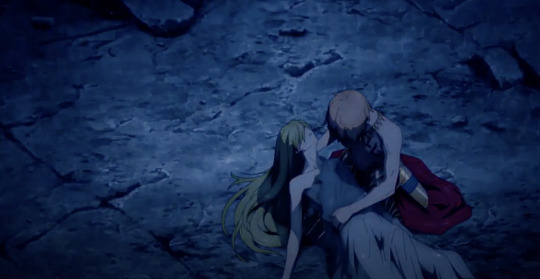
While this event is not shown directly shown in the anime, it is mentioned in the original Sumerian poem from three thousand years ago, translated as follows:
“It saddens me. It saddens me, Gil. Who would understand you after I die? Who else would march by your side? My friend… when I think you will live on all alone henceforth, I can’t help but shed tears. But don’t be saddened. For I am but another of your treasures.” - Enkidu

It’s honestly a rather heartbreaking end to their friendship.
One would have thought that the arrogant and prideful King of Heroes would have had a rather stoic response. But history says otherwise:
"You do have worth. You alone have this worth. I hereby declare: In all this world, only one shall be my friend. Thus---not for all eternity shall his worth ever change." - Gilgamesh
And with this, Enkidu returned to the Earth, leaving nothing behind but Gilgamesh's thunderous cry.
And for those of you who have watched Fate Zero, you’ll know that Gilgamesh kept this promise, even thousands and thousands of years later.
The Herb
After Enkidu’s death, Gilgamesh realised something.
As he was one-third human, he too would one day die.
If this were to happen, he would not be able to fulfil his dream of watching over humanity until the end of time, and it also meant he would not be able to carry out his purpose as the Wedge of Heaven.
And thus, for the first time in his existence, the king of heroes felt fear.
And this brings us to the core of the ancient Sumerian poem.
Gilgamesh, wanting to beat death, set out on a journey to find the only treasure that he didn’t have in his vault—the Herb of Immortality.
What does this herb do?
Well, it’s in the name so figure it out for yourselves.
Gilgamesh wandered the Earth for several decades in search of this herb, and eventually, stumbles upon a wise sage in the underworld that guides him in the right direction.
Sure enough, Gil finds the herb and is absolutely euphoric, because he has just beaten death, and all that’s left for him to do, is return to Uruk, and see over his people until the end of time.
Before beginning his journey back home, Gil decides to wash off in a nearby spring, where he first places the herb on the ground. However, as fate would have it, a serpent stumbles upon the bathing Gilgamesh, and after seeing the herb, it eats it.
And a little fun fact. It’s thought that the Sumerians and many of the cultures that followed, believed that snakes have the ability to shed their skin because this serpent ate the herb of immortality, giving snakes the ability to be reborn.
Much like the biblical tale of Adam, Eve, and the serpent, this story serves as a stark reminder of life's impermanence and the inevitable reality of death.
By losing the herb, Gilgamesh confronts the bitter truth: immortality remains beyond human grasp.
After realising what happened, you’d think Gilgamesh would be upset, or that he would be outraged, but, he wasn’t.

He realised that death was unavoidable and that by dying, he wasn’t abandoning his duty, he was completing it, because it was the most human thing he could do.
He realised that you didn’t die because you were human, but you were human because you died.
And with his Sha Naqba Imuru, Gilgamesh was able to see into the future, and what he saw was exactly what he loved about the humans in the first place.
He saw the continued growth of the human race, the way their knowledge developed, and the way they used their resources to reach for the stars and beyond.
With this new outlook, Gilgamesh returned to Uruk as a changed man.
Caster Gilgamesh
While Archer Gilgamesh was an arrogant tyrant that did disgusting things, Caster Gilgamesh was kind, generous, and benevolent.
He loved his people so much that he actually gave away all the swords in his treasury.

You see, these two versions of Gilgamesh are still the same person. It’s just that Archer Gilgamesh is the version of Gilgamesh we see before Enkidu’s death, and Caster Gilgamesh is the one we see after the death of his friend.
And yes, technically, Caster Gilgamesh is weaker than Archer Gilgamesh, and the biggest reason for that is the fact that he gave away so many of his weapons, weakening his Gate of Babylon.
But Caster Gilgamesh also had a noble phantasm that Archer Gilgamesh didn’t, Melammu Dingir, or King’s Signal Cannon.
If you’ve ever seen the movie Three Hundred, it’s a lot like that. But except for arrows, he’s firing every weapon he has at his disposal.
As I mentioned, Caster Gilgamesh was much more generous than Archer Gilgamesh, and he gave away his treasures for them to be used in cannons, should the city of Uruk need protection.
As such, this Noble Phantasm is classed as an Anti-Army ability, firing every weapon mankind had in one go.
But if you think that’s powerful, there’s one more noble phantasm I haven’t yet mentioned. But this one didn’t belong to Caster Gilgamesh, it belonged to Archer Gilgamesh.
The Sword of Rupture
Imagine a weapon so mighty that it not only holds power beyond comprehension but also taps into the very essence of our universe's creation.
Enter Ea, the sword of rupture.

But is it even correct to call it a sword?
Ea is the pinnacle of Noble Phantasms and is the strongest weapon in Gilgamesh’s treasury and it is unique to only him.
You might think it kind of looks like a sword, but it actually isn’t. It was designed before the concept of a “sword” even existed and so, it’s in its own class.
To even summon Ea, Gilgamesh first has to unlock the depths of his treasury with a key that only he possesses, and after that, we see the mere act of obtaining Ea disrupts reality itself.
Designed intricately, each section of Ea represents the Heaven’s, the Earth, and the Underworld, with the sections rotating in opposite directions, echoing the universe’s vast expanse.
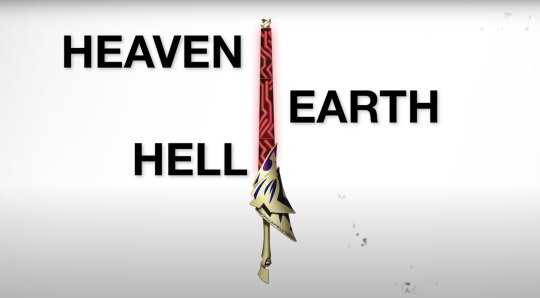
Gilgamesh claims that the sword "knows the truth" of the world where it once existed, and by using its power, it is able to bestow its knowledge upon others.
The weapon holds memories of a time even before the planet existed, a time when life, as we understand it, couldn't have survived. The memory of our universe's raw, primordial form, a chaotic blend of scorching heat and biting cold, of molten lava and dense gas, long before life as we know it began.
This primordial memory is embedded deep within our very DNA, a distant echo from eons past, now faded from our tales and consciousness.
Yet, to those who gaze upon the sword, this deep-seated, almost forgotten knowledge comes rushing back.
To Gilgamesh, Ea is more than just a weapon.
It’s an entity.
He treats it like a person. He talks to it, respects it, and unleashes its might only against those he deems truly worthy.
This isn't just any weapon; it's a creation from even before our planet's dawn, crafted by an unknown God and was once used to split the Heavens and Earth.
It is classed as an anti-universe noble phantasm with power unlike any other and its ability is called “Enuma Elish”, and to use the ability, Gilgamesh first recites an incantation, which is as follows:
“I will tell you of the beginning. Heaven and Earth split, nothingness congratulated creation, my Sword of Rupture cleaved the world!"
"Mortar of the stars, heaven's hell is the eve of creation's celebration. Now you shall die and be silent..."
This is actually another Babylonian tale from thousands of years ago titled “The Story of Creation”, buuuuuuuut I'll cover that another time.
I know that I’ve been describing Ea as a “weapon”, but it isn’t that at all. In fact, that barely scratches the surface of its true nature.
It's not an exaggeration when I say that Enuma Elish has the power to tear the universe apart. Yet, even such an unparalleled force had its moment of surprise.
(There is one recorded instance of it being stopped, something which shocked even Gilgamesh, but that’s a story for another time...)
Gilgamesh is only seen using this ability on two occasions, once against Rider and another against Tiamat, a primordial deity that almost destroyed the world and was so powerful, that even Gilgamesh couldn’t defeat her. Or rather, Caster Gilgamesh couldn’t. Because like I said before, Archer Gilgamesh is on an entirely different level.
Reunion
We see Gilgamesh use Ea’s full strength against Enkidu, not in their first battle, but rather, when they met again thousands of years later in Fate Strange/Fake.
Here, the world itself is sucked into the void created by the sword, and it begins tearing apart. But Enkidu has his own version of Enuma Elish and thus was able to hold the World together.
The battle is described as follows by those that observed it:
"I felt as if the World was born seven times, and destroyed seven times." - The Sacred Prostitute.
This meeting here is honestly, beautiful. And I know that’s a weird way to describe what is essentially a war to the death between mages, but that’s all I can say about it.
We know how much Gilgamesh values Ea. He is disgusted by the thought of someone unworthy even laying their eyes on it. And it’s so rare that we ever see him even using it.
But when he realises that his opponent is his first and only friend, he pulls out Ea with zero hesitation. [Say it with slight laughter]
In fact, this is the happiest we ever see Gilgamesh. He spends the entire battle laughing his heart out, and we see Enkidu, with a hand to his ears, admiring the sound of his friend's laughter as if it were a song.
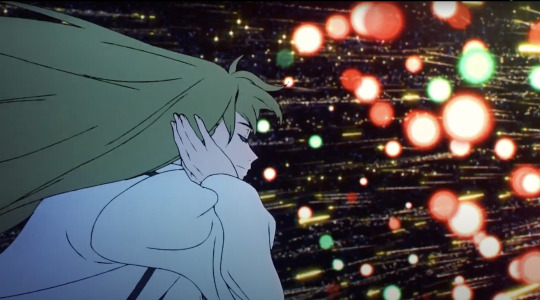
It’s a tragedy that Gilgamesh will never be able to see Enkidu again. But that’s life. As sad as it is to admit, we all have people we care about that will be gone from our lives forever.
It’s no wonder that Gilgamesh’s greatest treasure wasn’t any of his riches, any of his weapons, the holy grail, or even Ea.
It was his friendship with Enkidu.
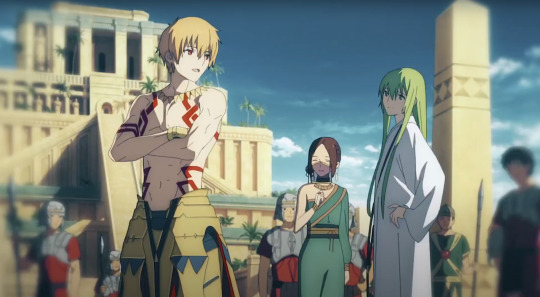
And with that, I’ve covered a fraction of The Epic of Gilgamesh. It took a lot of work and there’s a lot I couldn’t talk cover. I’ll probably make another post dedicated to Ea and another on Enkidu, but I’ll warn you, be prepared to cry.
psst... if you liked this essay, check out the full video essay on my youtube channel!
And I don't normally add this, but if I can be a teenie bit selfish on this one occasion:
Please check out the video (if you'd so graciously lend me a few minutes of your time) because it's by far the hardest I've ever worked on a video and I wholly believe the end result is really good. You can always leave a dislike and tell me how to improve if you don't like it lol
- love ya
youtube
47 notes
·
View notes
Text
Anime's Greatest Chad: The Epic of Gilgamesh (Fate)

Gilgamesh is known as mankind's first hero.
But his story isn’t limited to just the Fate series. In fact, it’s shaped our modern lives more than you could ever imagine.
If you’re here for a historically accurate depiction of the man who tried to conquer death, don’t leave. I’ve worked really hard to make this as accurate as possible.
And if you’re here for the story of the real anime Gigachad, and how he goes from an arrogant dictator to a benevolent king.
Then grab a drink and some snacks, because this, is the tale of the Hero of Heroes.

Roots of the King
Before we jump into the Epic of Gilgamesh, it’s worth taking a second to understand the roots of this iconic character and his influence on human culture and literature.
Mesopotamia was a region in 3100 BC, now covered by Iraq, Syria, and Turkey. It had its fair share of events, from the reigns of Sumerians and Akkadians to being eventually conquered by Alexander the Great in 332 BC.
But nestled within this timeline is a certain story that’s so profound, so raw, it's been echoing for millennia.
Now I know what you’re thinking.
"I'm here for anime, not a history lesson."
But the thing is, all evidence points to Gilgamesh actually existing 5000 years ago. And his legend is recorded in mankind’s oldest poem, the Epic of Gilgamesh.

The epic is thought to have been orally transmitted for generations before it was finally written down on clay tablets in the cuneiform script, which was one of the earliest systems of writing.
To put into context how old that is, it makes him almost 3000 years older than Jesus.
But I wouldn’t take EVERYTHING that follows as being literal. Just know that some of the stuff is actually reported to have happened.
The Hero of Heroes
Gilgamesh is known as the King of all Heroes because every single myth that followed, every story, every legend from every culture and every religion in every country, it all borrows inspiration from mankind’s first hero.
The strongest examples of this are in the Biblical tale of Noah and the Greek myth of Hercules. And his story greatly influences modern literature too, like The Lord of the Rings and A Game of Thrones.
The story of the Epic of Gilgamesh was discovered on 12 clay tablets found among the ruins of the ancient library of Ashurbanipal, the last great king of the Neo-Assyrian Empire.
These tablets, inscribed with cuneiform script, are dated to around the 7th century BC but are believed to preserve much older stories that were likely first told orally and later written down.
These ancient tablets provide the most comprehensive version of the epic, but parts of the tale also appear on other scattered fragments found at different ancient sites across the Middle East.
There are actually two versions of Gilgamesh in the Fate series and they’re technically different people.
Well, they’re not, but they kind of are.

Archer Gilgamesh
We’re in the year 2800 B.C., the Age of the Gods, where divine beings and humans walked the Earth together.
Some Gods were just, while others treated their subjects as slaves.
One day, a greater god called Sefar invaded the Earth, killing many of the Gods.

She was eventually defeated, but the damage was already done, and the rule the gods had over the humans had severely weakened.
In order to preserve their rule, the gods needed a keystone, a Wedge of Heaven that connected the rising humans to the fading gods.
That keystone was Gilgamesh.
Born from the Goddess Ninsun and the Human King Lugalbanda, Gilgamesh was two-thirds God, and one-third human, and ruled over humanity with the mission to observe and adjudicate.

The Fortress City
The city Gilgamesh ruled over was called Uruk, situated in present-day Iraq.
Yet, Uruk was far from ordinary.
It stood as a testament to human achievement, its towering walls not just architectural marvels but also echoes of the ambitions of its people.
Conceived under the watchful eye of Gilgamesh, these walls became more than mere defensive structures; they symbolised humanity's victory over nature. This audacious statement reflected Gilgamesh's own beliefs: that he stood above nature itself.

As evidence of its profound legacy, archaeologists pinpoint Uruk as one of humanity's earliest urban epicentres, with roots as deep as 4000 BCE. Its intricate temples, ziggurats, and canal systems all serve as relics of its storied past.
The Tyrannical King
This transcendence over nature, and the very walls that proclaimed it, became the lens through which Gilgamesh viewed himself.
To him, the limitations of divinity and humanity were but mere lines in the sand.
He believed that while no human could rival the gods, the gods themselves could never experience the complexities of human existence.
And since Gilgamesh was both human and God, he perceived himself not just above his subjects, but even the deities that breathed life into him.
His self-awareness was, in many ways, his crowning achievement.
Gilgamesh grew to become a cruel, arrogant, and oppressive tyrant who subjugated his people to forced labour and sexual abuse.
And just to be clear, I’m downplaying that a lot because even I don’t want to talk about some of the disgusting things he is historically reported to have done.
And it makes me wonder how he ever became a Heroic Spirit in the first place.

The Man Made of Clay
Naturally, the gods didn’t want this, but they couldn’t exactly do anything about it because, well, Gilgamesh just wouldn’t submit to them.
So instead, the King of God’s Anu, and the Goddess of Creation Aruru, created a monster out of clay called Enkidu, to punish the arrogant king.
But there was a problem.
You see, Enkidu didn’t have a soul, and so couldn’t make rational decisions.

So the gods sent a divine harlot to sleep with him. (And I’m not even joking.)
After this, Enkidu takes human form, and his final appearance is very similar to the girl he slept with. And that’s why he has such a feminine form.
(It’s definitely not because having more hot girls leads to more sales)

Noble Phantasm's
Before we dive into what happened between Gilgamesh and Enkidu, let’s talk about Gilgamesh’s powers, or more specifically, Archer Gilgamesh’s powers.
In Fate, heroic spirits have Noble Phantasms, which are special weapons or abilities that embody the legend of that hero. For example, King Arthur’s Noble Phantasm, or rather, Artoria’s Noble Phantasm (Again, because more hot girls = more sales), is Excalibur, the sword of promised victory.

Gilgamesh has a lot of Noble Phantasms, and I mean, A LOT. It would take me a decade to cover them all, but I’ll talk about a few.
Sha Naqba Imuru:
The first is his ability Sha Naqba Imuru, or Clairvoyance, which lets him see into the future and see the truth of anything he looks at.
So in a fight, he knows exactly who his opponent is, what their abilities are, and how best to defeat them. Or if he’s playing chess, then he knows the correct move every time.

This ability is pretty OP but the thing is, Gilgamesh barely uses it.
Why?
Because he’s an arrogant prick.
He believes himself to be so powerful, that he doesn’t even need it most of the time.
And uhm… he’s kinda right...
Especially when you learn about his next Noble Phantasm.
The Gate of Babylon:

During his time as ruler of Uruk, Gilgamesh amassed every single weapon on Earth and stored them all in his treasury.
And I genuinely mean, every single weapon.
And the Gate of Babylon allows him to choose whichever weapon he wants, whenever he wants, wherever he wants.

But that’s not how Gilgamesh uses it...
Every single weapon is fired out at a speed of Mach 10, and he has so many, that he could go his entire life firing them away without having to use a single one twice.
What makes this ability even more OP, is that these weapons aren’t just ordinary weapons. Every single one of them is a Noble Phantasm in itself. Artoria’s Excalibur, Lancer’s Gae Bolg, Hercules’ Nine Lives, Gilgamesh has all of these weapons in his treasury.

But how is that possible if these heroes came AFTER Gilgamesh?
Well. That’s because they’re prototypes.
I mentioned earlier that almost every legend told today is in some way inspired by the Epic of Gilgamesh. And in the same way, every weapon used today has a design that is somehow based on those in his treasury.
He owns every weapon that existed and owns every weapon that is yet to exist.
And don’t get me wrong.
While they’re technically prototypes, it is said that if you compare the original weapon to Gilgamesh’s prototype, the original will look like a fake, that’s how well-made the prototype is.
Not only that, but in a fight, the prototype will beat the original every time.
Now that doesn’t mean that if Gilgamesh were to use Excalibur and fight Artoria in a 1 on 1 swordfight that he would win.
He’d probably lose.
And that’s because he’s a jack of all trades but master of none.
Gilgamesh is a brilliant swordsman. But these other heroic spirits have spent their entire lives mastering a single weapon, and thus can use them to their full potential, which Gilgamesh cannot.
That being said. Gilgamesh DOES have one weapon that only he can use, one so powerful that it defies reality itself. Buuuuut I’ll talk about that later.

The Great Battle
Enkidu eventually confronts Gilgamesh outside of the Temple of Uruk, stating that he needed to be punished for disobeying the gods.

But Gilgamesh isn’t one to let anyone talk down on him.
So he engages Enkidu in a battle that lasts days on end.
And this was pretty new to Gil. It was the first time he ever came across someone equal in strength to him, which forced him to use his Gate of Babylon.
Gilgamesh was furious that someone had caused him to waste his weapons, he was humiliated.
But eventually, he stopped caring, and he even started to enjoy himself after finally finding someone worthy to be in his presence.

This battle lasted so long and was so fearsome that Gil exhausted every single weapon in his treasury, but by this point, Enkidu was severely weakened and Gilgamesh had won.
But instead of finishing him off, Gilgamesh extended a hand to him.
He saw Enkidu as an equal, and Enkidu ended up becoming Gil’s first friend, his only friend.
Friendship
One day, Gilgamesh set his sights upon defeating the Beast of the God’s, Humbaba.

But the thing is, the God’s hadn’t told him to do this, and he wasn’t doing it for the sake of his people either, because, well… he didn’t care about them.
Gilgamesh simply saw Humbaba as something that needed to be removed from the Earth in order to see out his mission.
Gilgamesh had always disobeyed the God’s so that he could be far removed from them, and he wanted his people to hate him so that he could be far removed from them, because that was the only way he could be truly neutral, because that was the mission for which he was born.
In this sense, you could argue that the reason that Gilgamesh was such an abhorrent dictator, was because he didn’t want to get close to his subjects, so that he could remain impartial.
(I don’t know how much truth there is to that and it could simply be a result of the story being altered as it was passed from generation to generation.)
Either way, seeing Gilgamesh’s resolve, Enkidu pledges his loyalty to him, and the two go on numerous adventures together, which ends with Gilgamesh becoming the wealthiest and most powerful king on Earth.
He amassed so much power that even the gods had no choice but to acknowledge it. One Goddess in particular, Ishtar, the Goddess of Fertility, asked Gilgamesh to marry her.
The King's Loss
Marrying a Goddess was actually one of Gilgamesh’s duties as it would see the continued reign of the gods over the humans, but Gilgamesh said no.
Enraged, Ishtar went to her father Anu, and asked him to unleash the Divine Beast Gugalanna on Uruk.
This divine beast devastated the lands for 7 years before Gilgamesh and Enkidu were finally able to defeat it. But this came at a price.
Ishtar asked the gods to sentence Gilgamesh and Enkidu to their deaths. While the Gods agreed, they couldn’t do anything to Gil, but they could to Enkidu, because he was their direct creation.
Enkidu’s clay body weakened and weakened until it would eventually return to the very Earth from which it had come.
Gilgamesh stayed by his friend's side until the very end.

While this event is not shown directly shown in the anime, it is mentioned in the original Sumerian poem from three thousand years ago, translated as follows:
“It saddens me. It saddens me, Gil. Who would understand you after I die? Who else would march by your side? My friend… when I think you will live on all alone henceforth, I can’t help but shed tears. But don’t be saddened. For I am but another of your treasures.” - Enkidu

It’s honestly a rather heartbreaking end to their friendship.
One would have thought that the arrogant and prideful King of Heroes would have had a rather stoic response. But history says otherwise:
"You do have worth. You alone have this worth. I hereby declare: In all this world, only one shall be my friend. Thus---not for all eternity shall his worth ever change." - Gilgamesh
And with this, Enkidu returned to the Earth, leaving nothing behind but Gilgamesh's thunderous cry.
And for those of you who have watched Fate Zero, you’ll know that Gilgamesh kept this promise, even thousands and thousands of years later.
The Herb
After Enkidu’s death, Gilgamesh realised something.
As he was one-third human, he too would one day die.
If this were to happen, he would not be able to fulfil his dream of watching over humanity until the end of time, and it also meant he would not be able to carry out his purpose as the Wedge of Heaven.
And thus, for the first time in his existence, the king of heroes felt fear.
And this brings us to the core of the ancient Sumerian poem.
Gilgamesh, wanting to beat death, set out on a journey to find the only treasure that he didn’t have in his vault—the Herb of Immortality.
What does this herb do?
Well, it’s in the name so figure it out for yourselves.
Gilgamesh wandered the Earth for several decades in search of this herb, and eventually, stumbles upon a wise sage in the underworld that guides him in the right direction.
Sure enough, Gil finds the herb and is absolutely euphoric, because he has just beaten death, and all that’s left for him to do, is return to Uruk, and see over his people until the end of time.
Before beginning his journey back home, Gil decides to wash off in a nearby spring, where he first places the herb on the ground. However, as fate would have it, a serpent stumbles upon the bathing Gilgamesh, and after seeing the herb, it eats it.
And a little fun fact. It’s thought that the Sumerians and many of the cultures that followed, believed that snakes have the ability to shed their skin because this serpent ate the herb of immortality, giving snakes the ability to be reborn.
Much like the biblical tale of Adam, Eve, and the serpent, this story serves as a stark reminder of life's impermanence and the inevitable reality of death.
By losing the herb, Gilgamesh confronts the bitter truth: immortality remains beyond human grasp.
After realising what happened, you’d think Gilgamesh would be upset, or that he would be outraged, but, he wasn’t.

He realised that death was unavoidable and that by dying, he wasn’t abandoning his duty, he was completing it, because it was the most human thing he could do.
He realised that you didn’t die because you were human, but you were human because you died.
And with his Sha Naqba Imuru, Gilgamesh was able to see into the future, and what he saw was exactly what he loved about the humans in the first place.
He saw the continued growth of the human race, the way their knowledge developed, and the way they used their resources to reach for the stars and beyond.
With this new outlook, Gilgamesh returned to Uruk as a changed man.
Caster Gilgamesh
While Archer Gilgamesh was an arrogant tyrant that did disgusting things, Caster Gilgamesh was kind, generous, and benevolent.
He loved his people so much that he actually gave away all the swords in his treasury.

You see, these two versions of Gilgamesh are still the same person. It’s just that Archer Gilgamesh is the version of Gilgamesh we see before Enkidu’s death, and Caster Gilgamesh is the one we see after the death of his friend.
And yes, technically, Caster Gilgamesh is weaker than Archer Gilgamesh, and the biggest reason for that is the fact that he gave away so many of his weapons, weakening his Gate of Babylon.
But Caster Gilgamesh also had a noble phantasm that Archer Gilgamesh didn’t, Melammu Dingir, or King’s Signal Cannon.
If you’ve ever seen the movie Three Hundred, it’s a lot like that. But except for arrows, he’s firing every weapon he has at his disposal.
As I mentioned, Caster Gilgamesh was much more generous than Archer Gilgamesh, and he gave away his treasures for them to be used in cannons, should the city of Uruk need protection.
As such, this Noble Phantasm is classed as an Anti-Army ability, firing every weapon mankind had in one go.
But if you think that’s powerful, there’s one more noble phantasm I haven’t yet mentioned. But this one didn’t belong to Caster Gilgamesh, it belonged to Archer Gilgamesh.
The Sword of Rupture
Imagine a weapon so mighty that it not only holds power beyond comprehension but also taps into the very essence of our universe's creation.
Enter Ea, the sword of rupture.

But is it even correct to call it a sword?
Ea is the pinnacle of Noble Phantasms and is the strongest weapon in Gilgamesh’s treasury and it is unique to only him.
You might think it kind of looks like a sword, but it actually isn’t. It was designed before the concept of a “sword” even existed and so, it’s in its own class.
To even summon Ea, Gilgamesh first has to unlock the depths of his treasury with a key that only he possesses, and after that, we see the mere act of obtaining Ea disrupts reality itself.
Designed intricately, each section of Ea represents the Heaven’s, the Earth, and the Underworld, with the sections rotating in opposite directions, echoing the universe’s vast expanse.

Gilgamesh claims that the sword "knows the truth" of the world where it once existed, and by using its power, it is able to bestow its knowledge upon others.
The weapon holds memories of a time even before the planet existed, a time when life, as we understand it, couldn't have survived. The memory of our universe's raw, primordial form, a chaotic blend of scorching heat and biting cold, of molten lava and dense gas, long before life as we know it began.
This primordial memory is embedded deep within our very DNA, a distant echo from eons past, now faded from our tales and consciousness.
Yet, to those who gaze upon the sword, this deep-seated, almost forgotten knowledge comes rushing back.
To Gilgamesh, Ea is more than just a weapon.
It’s an entity.
He treats it like a person. He talks to it, respects it, and unleashes its might only against those he deems truly worthy.
This isn't just any weapon; it's a creation from even before our planet's dawn, crafted by an unknown God and was once used to split the Heavens and Earth.
It is classed as an anti-universe noble phantasm with power unlike any other and its ability is called “Enuma Elish”, and to use the ability, Gilgamesh first recites an incantation, which is as follows:
“I will tell you of the beginning. Heaven and Earth split, nothingness congratulated creation, my Sword of Rupture cleaved the world!"
"Mortar of the stars, heaven's hell is the eve of creation's celebration. Now you shall die and be silent..."
This is actually another Babylonian tale from thousands of years ago titled “The Story of Creation”, buuuuuuuut I'll cover that another time.
I know that I’ve been describing Ea as a “weapon”, but it isn’t that at all. In fact, that barely scratches the surface of its true nature.
It's not an exaggeration when I say that Enuma Elish has the power to tear the universe apart. Yet, even such an unparalleled force had its moment of surprise.
(There is one recorded instance of it being stopped, something which shocked even Gilgamesh, but that’s a story for another time...)
Gilgamesh is only seen using this ability on two occasions, once against Rider and another against Tiamat, a primordial deity that almost destroyed the world and was so powerful, that even Gilgamesh couldn’t defeat her. Or rather, Caster Gilgamesh couldn’t. Because like I said before, Archer Gilgamesh is on an entirely different level.
Reunion
We see Gilgamesh use Ea’s full strength against Enkidu, not in their first battle, but rather, when they met again thousands of years later in Fate Strange/Fake.
Here, the world itself is sucked into the void created by the sword, and it begins tearing apart. But Enkidu has his own version of Enuma Elish and thus was able to hold the World together.
The battle is described as follows by those that observed it:
"I felt as if the World was born seven times, and destroyed seven times." - The Sacred Prostitute.
This meeting here is honestly, beautiful. And I know that’s a weird way to describe what is essentially a war to the death between mages, but that’s all I can say about it.
We know how much Gilgamesh values Ea. He is disgusted by the thought of someone unworthy even laying their eyes on it. And it’s so rare that we ever see him even using it.
But when he realises that his opponent is his first and only friend, he pulls out Ea with zero hesitation. [Say it with slight laughter]
In fact, this is the happiest we ever see Gilgamesh. He spends the entire battle laughing his heart out, and we see Enkidu, with a hand to his ears, admiring the sound of his friend's laughter as if it were a song.

It’s a tragedy that Gilgamesh will never be able to see Enkidu again. But that’s life. As sad as it is to admit, we all have people we care about that will be gone from our lives forever.
It’s no wonder that Gilgamesh’s greatest treasure wasn’t any of his riches, any of his weapons, the holy grail, or even Ea.
It was his friendship with Enkidu.

And with that, I’ve covered a fraction of The Epic of Gilgamesh. It took a lot of work and there’s a lot I couldn’t talk cover. I’ll probably make another post dedicated to Ea and another on Enkidu, but I’ll warn you, be prepared to cry.
psst... if you liked this essay, check out the full video essay on my youtube channel!
And I don't normally add this, but if I can be a teenie bit selfish on this one occasion:
Please check out the video (if you'd so graciously lend me a few minutes of your time) because it's by far the hardest I've ever worked on a video and I wholly believe the end result is really good. You can always leave a dislike and tell me how to improve if you don't like it lol
- love ya
youtube
#gilgamesh#the epic of gilgamesh#fate series#fate grand order#fate stay night#fate strange fake#anime#enkidu
47 notes
·
View notes
Text

She’s so pretty
14K notes
·
View notes
Photo




(dont tag as ‘my gf’ or ‘my wife’ she is 14) i revisited the part of me that craved redesigning salome while i get used to new tablet
119 notes
·
View notes
Text
How to win the 3rd grail front day for good

#At the beginning I didn't even noticed#she literally destroyed all the servants by herself#except holmes#she was really inpatient to reach her love#fgo#play fgo#Cesar#cleopatra#fate grand order
0 notes
Photo


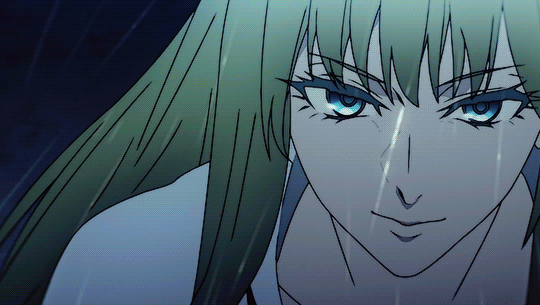



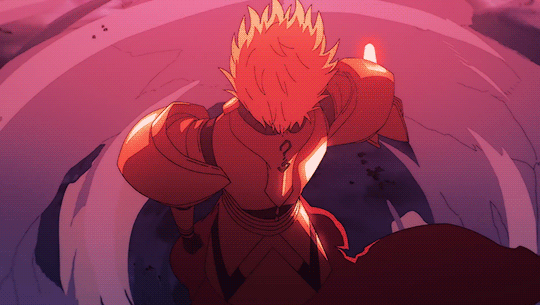
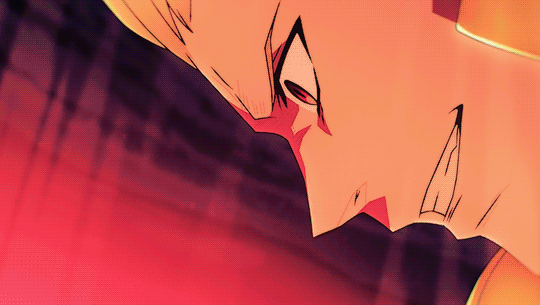
Enuma Elish!
#lads mind if I#aaaaaaaahhhhhhhh#*screams in adoration*#please make it an actual anime#fate strange fake#fate series#gilgamesh#enkidu
716 notes
·
View notes
Photo


Love
359 notes
·
View notes
Text
HAPPY NEW YEAR EVERYONE!!
It is now that period of the year again!
You know, this
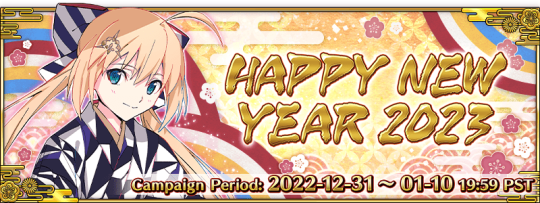
So I've rolled the GSSR as usual, I've decided for the White Four Cavaliers Class banner. This because it would've be a win in any case!
Here the tier list

Aaaand here the result:
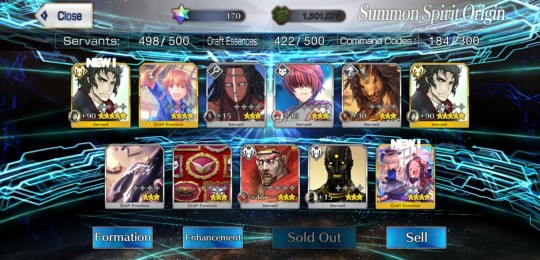
Got double Shinsengumi!! Finally a limited 5 star Berserker! I hope that all the Shinsengumi servants will follow the capitan, because ALL of them avoided me until now!
Going to the new year banner.

I managed to summon Muramasa!! With just 150 SQ and 40 tickets!! He showed up at the x2 summon after a 10 tickets summon ❤️
I also acquired Parvati (first copy), NP2 Marie, Astolfo and D'eon.
I'm so damn happy because I didn't touch my SQ fragments(started to save from the last anniversary) and the extra rewards SQ! My intention is to save those SQ for the next anniversary, because KOYASKAYA IS A MUST HAVE!
7 notes
·
View notes